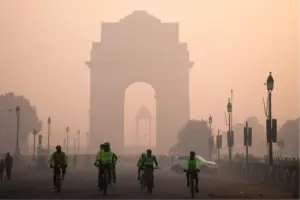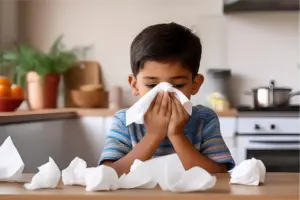
Amid rising concerns over the Human Metapneumovirus (HMPV), Haryana Health Minister Arti Singh Rao has assured the public of the state’s preparedness to manage the situation effectively. Speaking to the media, Minister Rao emphasized vigilance while urging people to remain calm and informed about the virus.
“We are ready. All the districts have been informed to stay alert. I want to request the public not to panic. This virus can spread but it is not dangerous. It is treatable,” Minister Rao stated.
Authorities in Haryana have intensified efforts to monitor the virus’s spread, ensuring healthcare facilities are well-equipped to respond. Public awareness campaigns are also being launched to educate people about symptoms, precautionary measures, and treatment options.
Expert Insights on HMPV
Medical professionals highlight that while HMPV is an emerging concern, it is not a new virus, having been identified in 2001. According to Aabid Amin Bhat, Medical Director of Ujala Cygnus Group of Hospitals, “There’s no reason to panic. Understanding the symptoms, taking precautions, and adhering to testing protocols are crucial in effectively managing its spread.”
Is HMPV Similar to COVID-19?
Experts note significant differences between HMPV and COVID-19. According to Dr. Harish Bhatia, Founder of Rebreathe Clinic and Senior Consultant at Apollo Hospital, HMPV typically causes symptoms like fever, cold, runny nose, and sore throat, while gastrointestinal issues are rare. In contrast, COVID-19 often presents with a persistent dry cough, fever, difficulty breathing, and may include loss of taste or smell, along with gut-related issues like nausea or diarrhea.
Dr. Shubham Vatsya, Senior Consultant at Fortis Hospital, further emphasized, “HMPV rarely causes gastrointestinal symptoms like nausea or vomiting, which are more common with COVID-19. These differences are key to accurate diagnosis and management.”
Public Advisory
The Haryana Health Ministry and medical experts encourage the public to practice good hygiene, avoid close contact with individuals displaying respiratory symptoms, and seek timely medical advice if symptoms like fever or sore throat persist. Public health authorities continue to monitor the situation closely, ensuring that necessary measures are in place to safeguard community health.
By staying informed and following preventive guidelines, the public can play a pivotal role in curbing the spread of HMPV.








